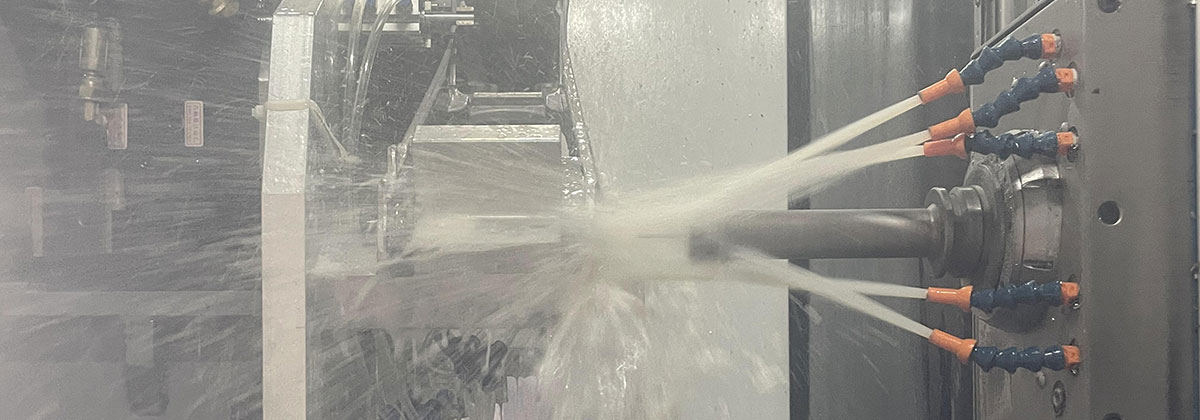Machined casting is a critical process in the manufacturing industry that involves the production of complex and intricate parts. It combines the advantages of both casting and machining, resulting in high-quality components that meet the specific requirements of various industries. This article provides an overview of machined casting, its benefits, and its applications in different sectors.
1. What is Machined Casting?
Machined casting is a manufacturing process that involves the production of parts by pouring molten metal into a mold and then machining the solidified casting to achieve the desired shape and dimensions. It is a versatile technique that allows for the creation of intricate and complex parts that are difficult to produce through other methods.
2. The Process of Machined Casting
The process of machined casting typically involves the following steps:
a. Pattern Creation: A pattern, which is an exact replica of the desired part, is created using various materials such as wood, plastic, or metal.
b. Mold Creation: The pattern is used to create a mold, which is a negative replica of the part. The mold can be made from materials like sand, plaster, or metal.
c. Casting: Molten metal, such as aluminum, iron, or steel, is poured into the mold. The metal solidifies and takes the shape of the mold, forming the casting.
d. Machining: Once the casting has solidified, it is removed from the mold and undergoes machining processes such as milling, turning, drilling, and grinding to achieve the required dimensions and surface finish.
e. Finishing: The machined casting may undergo additional finishing processes like polishing, coating, or heat treatment to improve its properties or appearance.
3. Advantages of Machined Casting
Machined casting offers several advantages over other manufacturing processes, making it a preferred choice for many industries. Some of the key benefits include:
a. Design Flexibility: Machined casting allows for the production of complex shapes and intricate details that are difficult to achieve through other methods. It enables the creation of parts with internal cavities, undercuts, and thin walls.
b. Material Variety: The process of machined casting supports a wide range of materials, from ferrous and non-ferrous metals to alloys and composites. This versatility allows for the selection of materials that best suit the specific application requirements.
c. Cost-Effectiveness: Machined casting can be a cost-effective solution for producing small to medium-sized batches of parts. The initial tooling costs may be higher compared to other processes, but the per-unit cost decreases as the production volume increases.
d. Superior Mechanical Properties: The solidification process during casting followed by machining ensures superior mechanical properties in the final product. Machined castings possess higher strength, better dimensional accuracy, and improved surface finish.
4. Applications of Machined Casting
Machined casting finds applications in various sectors, including automotive, aerospace, energy, and industrial machinery. Some of the common applications include:
a. Automotive Industry: Machined castings are widely used in the automotive industry for producing engine components, transmission parts, brake systems, and suspension components.
b. Aerospace Industry: Machined castings are employed in the aerospace industry for manufacturing turbine blades, engine casings, landing gear components, and structural parts.
c. Energy Sector: Machined castings play a vital role in the energy sector by producing components for power generation, transmission, and distribution systems, including turbine parts, valves, and pump casings.
d. Industrial Machinery: Machined castings are utilized in the production of various industrial machinery components, such as gears, bearings, housings, and frames.
Conclusion
Machined casting is an essential process in manufacturing, offering design flexibility, material variety, cost-effectiveness, and superior mechanical properties. Its applications span across multiple industries, contributing to the production of complex and high-quality parts. With continuous advancements in technology and materials, machined casting remains a crucial element in meeting the evolving needs of the manufacturing sector.
-

- Parti e componenti pressofusi OEM
-

- Parti e componenti pressofusi su misura per forcella ammortizzata per bicicletta per MTB
-

- Parti e componenti pressofusi OEM
-

- Il produttore di pressofusione OEM produce cruscotti automatici in lega di magnesio
-

- Telaio OEM in lega di magnesio pressofuso ad alta pressione per bicicletta
-

- Componenti di alta precisione in magnesio thixomolding Copertura UAV

 0086-750-5616188
0086-750-5616188 +86 13392089688
+86 13392089688 sales@zhongmei-tech.com
sales@zhongmei-tech.com








